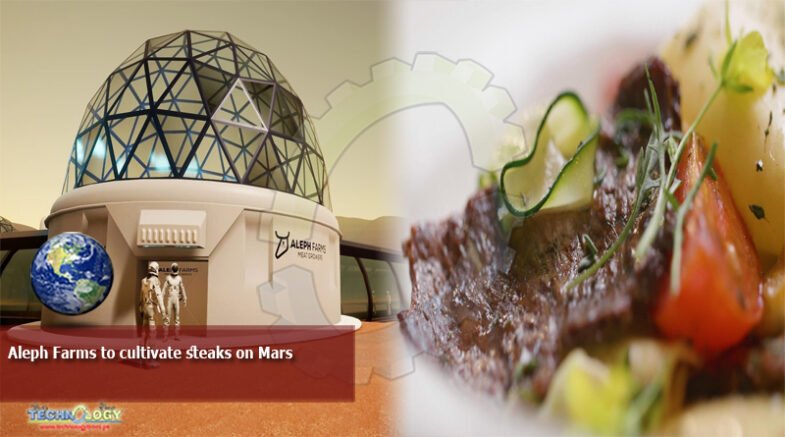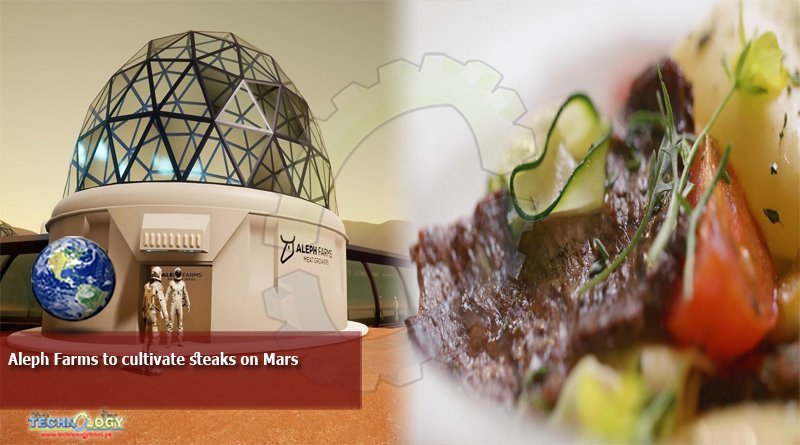Israeli foodtech startup Aleph Farms, Ltd., a developer of non-GMO cell-based 3D bioprinting meat platform announced the launch of ‘Aleph Zero’, its new food production initiative to take 3D meat printing on an extraterrestrial mission to Mars.

One of the main challenges facing long-term space exploration has been limited food printing/growing options in extra harsh conditions. Aleph Zero aims to change that by advancing the production of fresh quality meat regardless of climate and natural resources. Aleph Farms has successfully cultivated non-GMO meat products from bovine cells, and recently has taken its bioprinting skills to the last frontier – space.
“‘Aleph Zero’ represents the mathematical symbol of the smallest infinite number, and how Aleph Farms brings space infinity closer by supporting deep-space exploration and colonization of new planets. The term also represents the company’s vision for producing meat with near-zero natural resources,” explains CEO Didier Toubia, who co-founded Aleph Farms with ‘The Kitchen Foodtech Hub’ of Strauss Group and with Professor Shulamit Levenberg of the Technion – Israel Institute of Technology.
The foodtech space program comes barely a year after Aleph, in collaboration with Russian firm 3D Bioprinting Solutions, successfully produced meat on the International Space Station. This marked a historic milestone, proving that meat from various types of cow cells could be cultivated under micro-gravity and far from any natural resources.
To achieve this vision of producing quality and nutritional meat products in space, Aleph Farms is securing strategic partnerships with technology companies and space agencies for long term collaborative research and development contracts that will ensure the integration of Aleph Farms’ innovations into leading space programs. According to Aleph, these programs will leverage the company’s deep-rooted know-how in cell biology, tissue engineering, and food science to establish BioFarms in extraterrestrial environments, enabling the company to eventually apply the lessons learned in space to earthbound sites.
“The constraints imposed by deep-space-exploration — the cold, thin environment and the circular approach — force us to tighten the efficiency of our meat production process to much higher sustainability standards,” notes Toubia. “The program ‘Aleph Zero’ reflects our mission of producing quality, delicious meat locally where people live and consume it, even in the most remote places on Earth like the Sahara Desert or Antarctica. Providing unconditional access to high-quality nutrition to anyone, anytime, anywhere,” adds Toubia. “When people will live on the Moon or Mars, Aleph Farms will be there as well.”
Originally published at GeekTime
